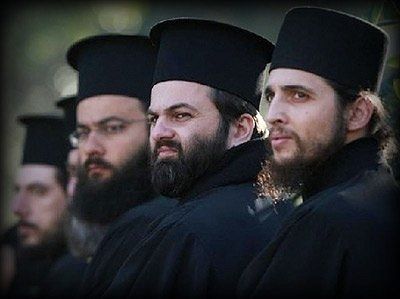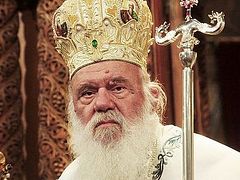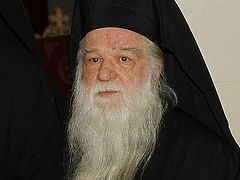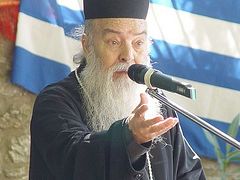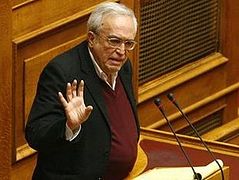Moscow, June 20, 2017
The Greek Ministry of Finance has published data on the wages of civil servants, which in Greece includes Orthodox clergy, reports Pravmir.
In accordance with a new law on the salaries of higher civil servants, the base monthly salary for an archbishop is 2,600 euros ($2,900), 2,210 ($2,465) for a metropolitan, and 1,820 ($2,030) for a bishop. Archbishops are higher than metropolitans in the Greek hierarchical system. An additional 75 ($84) euros is given for those holding a PhD, and 45 ($50) for a master’s degree.
Ordinary priests with a higher education receive 678 ($755) euros, after 10 years of service—1,032 ($1,150), and after 30 years—1,410 ($1,573). For those clergy who have only graduated from seminary, the basic salary is 644 ($720) euros, and after 30 years—1,099 ($1,225).
Due to limitations in recent years, the government has seriously restricted the possibility of ordaining new clergy, which has led to the emergence of so-called “unpaid clergy.” Such priests receive no pension, have no medical insurance, and have no authority to sign official documents, as they do not serve as government officials.
According to the present legislation, a new public servant can be accepted for employment only after the retirement of ten of his colleagues. According to the data of the Holy Synod of the Church of Greece, the number of parishes without pastoral care as of November 2015 reached 22%, with the Church short 2,300 priests out of the total 10,500 necessary.
Metropolitan Efstathios of Momemvasia and Sparta describes the situation as critical:
Each diocese is lacking at least 20 priests; in our metropolis 70 priests are lacking. It means that the Liturgy is not celebrated at some churches on Sundays. Residents of small villages are abandoned by officials, by teachers, state services. Only the Church remains with them. But if there are no priests, they will lose protection and support altogether.
When there is one new ordination of a priest for 6-7 retiring priests, you realize where we are going. In 15 years only 20-30 of 120 priests will be left in the diocese, and each of them will have to be in charge of 4-5 parishes, situated many miles away from each other.
Thanks to the efforts of Archbishop Ieronymos II, the primate of the Greek Orthodox Church, the state will allocate almost 180 new places for priests in rural areas. The Greek state has been responsible for the clergy payroll since 1833 while the Greek Orthodox Church has given a major part of its real estate property to several Greek municipalities.

